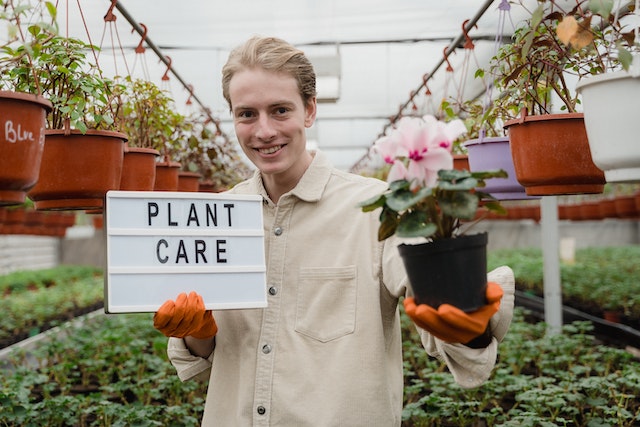Plants need to be planted near like-minded plants to thrive. Sun-loving plants should not be planted next to shade-loving ones. They may compete for sunlight and water.
Crowded plants create high humidity, spreading diseases like powdery mildew. Improving airflow by removing crowded plants and spreading mulch will help.
Watering
A well-watered nursery is the foundation of a home’s greenery and can transform an outdoor space into a place to relax, entertain, and enjoy. From a simple houseplant to a lush perennial bed, all plants need water to grow and thrive.
A lack of water can harm a plant’s health, preventing it from producing enough food to sustain life. This is why wilting plants often indicate that they need more water.
In addition to ensuring that your garden’s soil is properly moistened, watering can also help prevent the spread of fungal diseases. Watering your garden in the early morning or late afternoon when it is cooler outside is best. This will prevent moisture loss due to evaporation. Moreover, when watering your garden, it is important to focus on the plant’s roots rather than the leaves, as wetting the foliage can impede growth.
Fertilizing
Besides sunlight and water, plants need certain nutrients to grow properly and produce flowers and fruit. Without these nutrients (macronutrients), a garden will eventually look dull and lifeless.
Most plants can get their essential nutrients from the soil. However, the type of soil and what has been growing in it in the past can impact its nutrient levels. Additionally, plants can use the available nutrients over time even with rich soil.
To help your garden grow, fertilize regularly with a balanced granular all-purpose garden fertilizer at planting time and with liquid fertilizers throughout the season. Many perennials, vegetables, and lawns will benefit from a second granular application in early fall. Avoid over-fertilizing, as excess can burn or leach out the nutrients before the plants can use them. Water all liquid fertilizers well to help them disperse and be absorbed by the roots. If possible, apply a slow-release or organic fertilizer for extended nutrient release.
Pruning
If you have a lot of plants, pruning is crucial in keeping them healthy and well-groomed. Pruning can also help your garden grow by removing pests, worms, and insects that eat, suck sap, and damage leaves, stems, and flowers.
Removing dead or dying flowers, branches, and leaves allows a plant to divert its energy to new growth rather than the decaying parts of the plant. Thinning crowded center plants and cutting back spent perennials helps open them up and improve airflow, reducing relative humidity and encouraging fungal diseases like powdery mildew. Infected leaves or flowers can spread disease to other plants nearby, so you must remove them. Removing suckers, double-crossed branches, and water sprouts helps to direct the shape of a shrub or tree as it grows and prevents them from competing for light and space. This can be done any time of year but is most effective during Winter or early Spring before the onset of new growth (March-April).
Insect Control
Healthy plants are less stressed and thus more able to resist pests. Soil testing, fertilizing, and avoiding standing water are preventative measures. Regularly checking plants for discoloration, wilting, holes, displaced roots, stunted growth, and other abnormalities is critical in identifying problems early on.
Providing habitat for beneficial insects can help control some garden pests. Grow plants that attract these beneficial insects, including yarrow, cosmos, dill, hardy aster, black-eyed Susans, and sunflowers. Other beneficial insects include lacewings, lady beetles, and predatory wasps that prey on aphids and caterpillars.
Installing physical barriers can also help control garden pests. Plant covers like row covers, fabric, and netting can protect plants from harsh weather conditions and pests. Pheromone traps can help deter rodents and other animals that chew on plants, dig bulbs, or eat crops. Raised vegetable beds can help keep rabbits and other mammals off vegetables and fruits. And a fence will deter deer, chipmunks, and other large pests from grazing on flowers, veggies, and berries.




